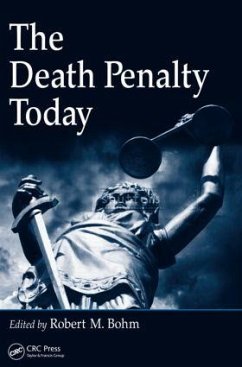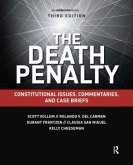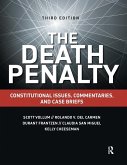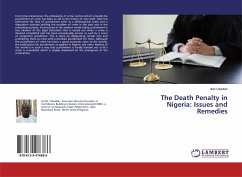While debate over capital punishment will never end, America seems to be at a crossroads in determining if the use of government sanctioned execution can be employed fairly and efficiently with a positive impact on the greater good. Respected for his evenhanded contributions to the death penalty debate, Robert Bohm calls upon the most poignant experts in this field who address legal, empirical, political, and philosophical aspects of capital punishment as they are manifesting themselves today. The book shapes the debate by presenting a perspective wrapped in the current mindset and concerns of society. It then discusses death penalty commissions and national surveys, and addresses consensual executions, as well as the current controversy over lethal injection. The book also looks at lynching, compensations for wrongful executions, historic executions, and discusses how to identify and address the errors made in capital cases.
More than 30 years after the US Supreme Court reinstated the death penalty, it is still plagued with egregious problems. Issues of wrongful conviction, inhumane practices, and its efficacy as a deterrent are hotly debated topics. As of August 2007, two-thirds of the world's countries have abolished the death penalty. Today, the US falls alongside Iran, Iraq, Sudan, China, and Pakistan as countries that continue to believe the death penalty is a necessary and productive practice. Compiling articles and essays from leading experts, The Death Penalty Today presents an in-depth examination of the current points of debate. The first of two sections focuses on miscarriages of justice, including errors in conviction and possible remedies. It reviews 13 death penalty study commissions that reveal potential causes of wrongful conviction and discusses relevant factors such as geography, timeframe, and race. The first section also considers the responsibility of the state for reintegration of the wrongfully convicted after exoneration, as well as flaws with the ability of lethal injections to produce a "humane" and "painless" death. The second section addresses death penalty opinion with a survey of scholarly experts as well as a survey of mid-level police managers. It considers the criminalization of reporting, televising, and photographing executions and the implications to the first amendment and government accountability. It reveals the phenomenon of consensual executions as assisted suicide and the curious dichotomy in logic between the reviled practice of lynching and its close cousin-the government sanctioned execution. With lucid arguments supported by verifiable statistics and expert opinion, The Death Penalty Today provides a sober look at the death penalty in the US and begs the question of when, not if, the US will join the majority of the civilized world in its abolition.
Hinweis: Dieser Artikel kann nur an eine deutsche Lieferadresse ausgeliefert werden.
More than 30 years after the US Supreme Court reinstated the death penalty, it is still plagued with egregious problems. Issues of wrongful conviction, inhumane practices, and its efficacy as a deterrent are hotly debated topics. As of August 2007, two-thirds of the world's countries have abolished the death penalty. Today, the US falls alongside Iran, Iraq, Sudan, China, and Pakistan as countries that continue to believe the death penalty is a necessary and productive practice. Compiling articles and essays from leading experts, The Death Penalty Today presents an in-depth examination of the current points of debate. The first of two sections focuses on miscarriages of justice, including errors in conviction and possible remedies. It reviews 13 death penalty study commissions that reveal potential causes of wrongful conviction and discusses relevant factors such as geography, timeframe, and race. The first section also considers the responsibility of the state for reintegration of the wrongfully convicted after exoneration, as well as flaws with the ability of lethal injections to produce a "humane" and "painless" death. The second section addresses death penalty opinion with a survey of scholarly experts as well as a survey of mid-level police managers. It considers the criminalization of reporting, televising, and photographing executions and the implications to the first amendment and government accountability. It reveals the phenomenon of consensual executions as assisted suicide and the curious dichotomy in logic between the reviled practice of lynching and its close cousin-the government sanctioned execution. With lucid arguments supported by verifiable statistics and expert opinion, The Death Penalty Today provides a sober look at the death penalty in the US and begs the question of when, not if, the US will join the majority of the civilized world in its abolition.
Hinweis: Dieser Artikel kann nur an eine deutsche Lieferadresse ausgeliefert werden.








